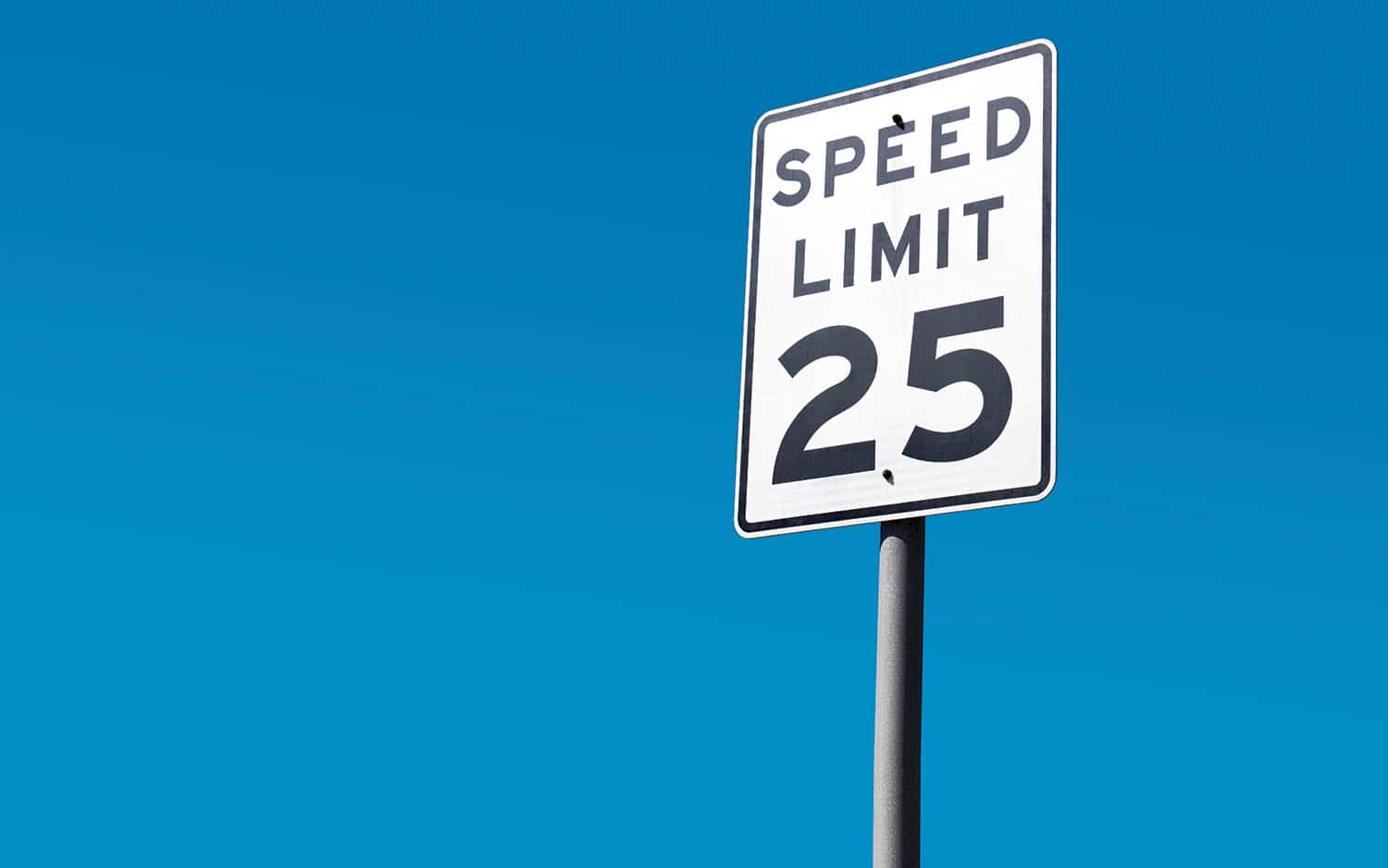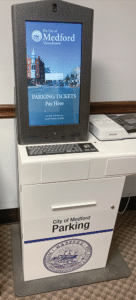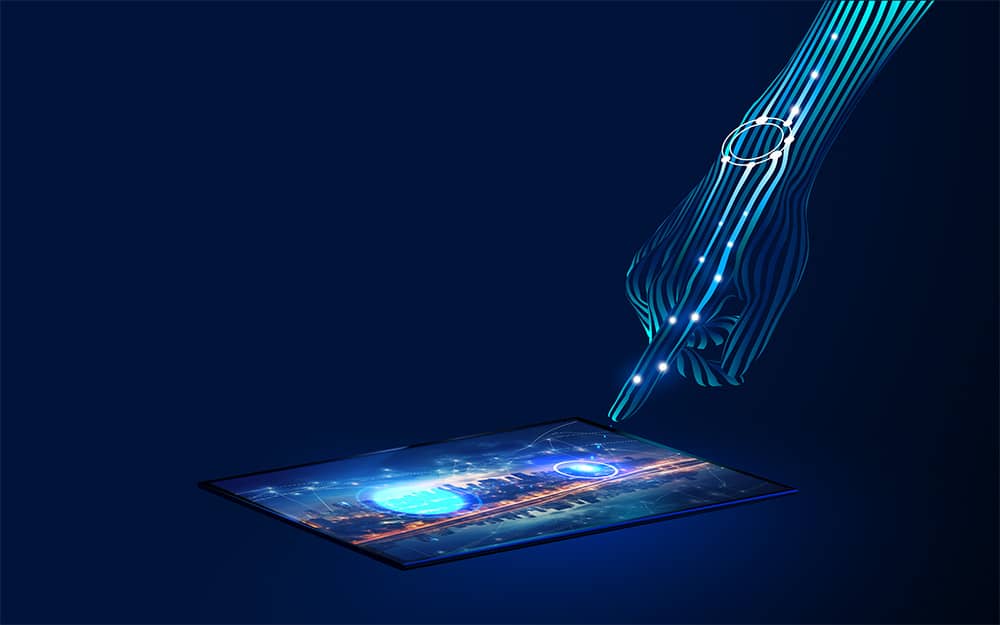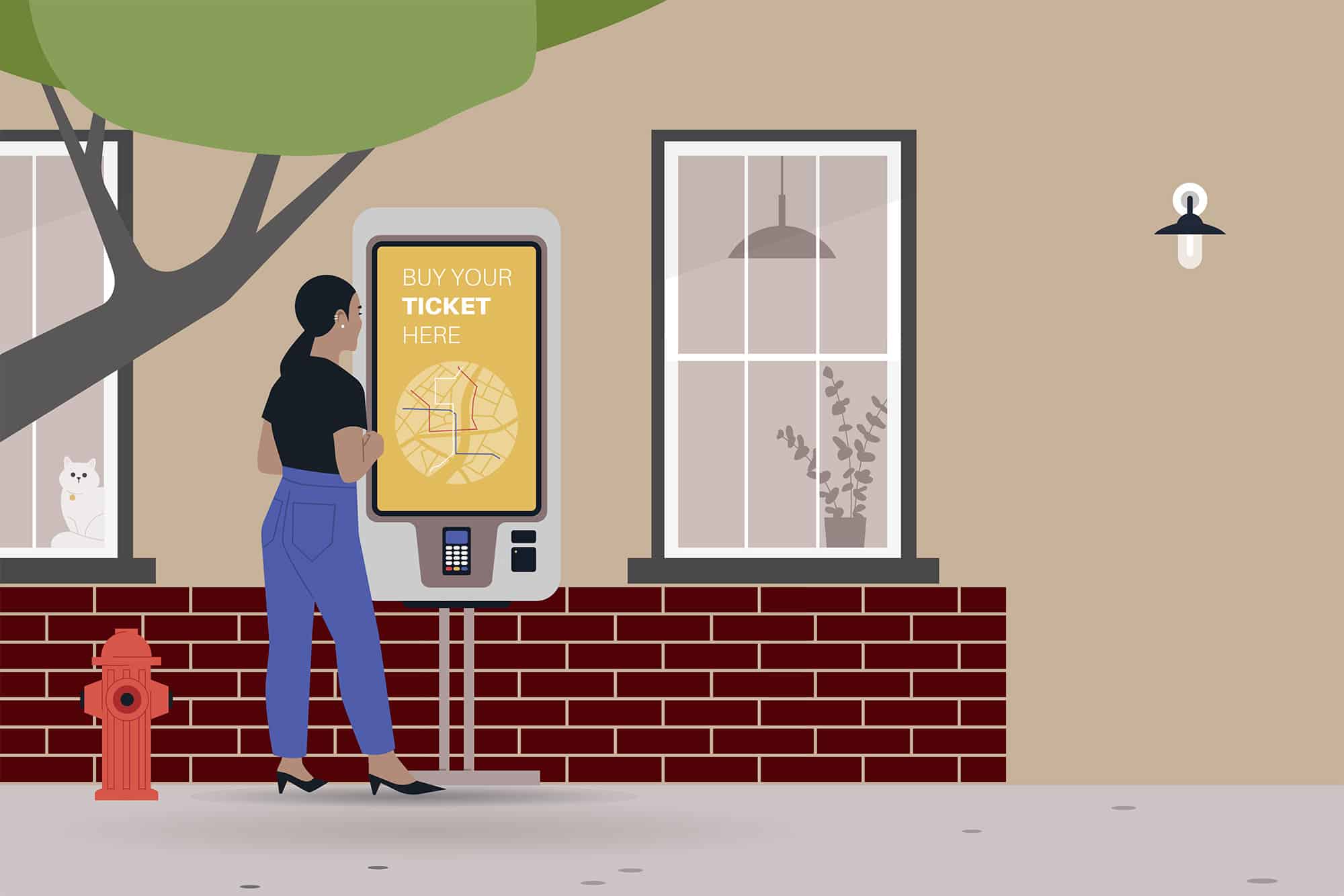
No More Waiting in Line
Self-Service Kiosks and the Democratization of Digital Services
When the City of Medford, MA, brought parking operations in-house in 2021, the parking department became the first in the city to operate entirely in the cloud. With this transformation, the municipality has offered a platform that works in real-time and keeps pace with the growing expectations for digital services.
Central to this initiative was the goal to create a better way for Medford citizens to access city assets, which was achieved by implementing self-serve kiosks. They have had a pivotal role in this success story, as they ensure that the benefits of the digital age extend to every corner of society.
The result? “95% of people in the city have been compliant. They see an improvement and are happy and appreciative of their streets being more parkable,” says Medford’s Parking Director, Faye Morrison.
Accessible and User-Friendly Online Services for All Citizens
The traditional habit of queuing in long lines at government offices to pay parking fines or contest tickets is outdated and frustrating. So, when Faye Morrison took over parking enforcement in Medford, MA, building streamlined interactions became a top priority for the administration.
The in-house parking department operates offline and online through a platform prioritizing transparency, functional infrastructure, and a good relationship with all citizens.

The kiosks are the welcomed alternative to the online platform and the government office that doesn’t accept credit cards. These terminals bridge the gap between citizens and public services and ensure everyone in the community can conveniently engage with parking-related services.
The citizens of Medford have access to five kiosks — one in the City Hall, two in Housing Department locations, and two throughout the city. Anyone can use them for various payments.
“We put the City’s homepage on it so people can also pay taxes, rent, and bills there. We found that we could help not just the drivers but all the citizens who wanted to make payments with their credit cards,” explains Morrison.
Technology that Empowers: Elevating the User Experience
It’s not just about technological convenience; it’s a mentality shift in delivering efficient public services that are deeply empathetic to the community’s diverse needs. Self-service kiosks promote accessibility by ensuring equal access to parking services and empowering citizens to engage with public services digitally.
“The kiosk in City Hall has improved the customer experience more than I thought it would,” confirms Morrison.
The kiosk’s interface acts as a virtual gateway, guiding users through the payment process and offering an intuitive platform for contesting tickets or viewing their status. Furthermore, integrating digital forms makes it easy for users to engage with essential documents, reducing the need for physical paperwork.
The self-service kiosks are optimized to enhance user engagement. They come with 22” touchscreens to view entire documents without scrolling. The incorporated thermal printer lets users conveniently print essential documents, forms, permits, and receipts.
Redefining the Way Citizens Interact with Their Parking-Related Tasks
Self-service kiosks eliminate the time-consuming visits to government offices for parking-related problems. From contesting tickets to scheduling hearings, citizens can accomplish these tasks without the need to be physically present. This shift to remote management aligns with contemporary lifestyles and liberates citizens and government staff from the limitations of bureaucratic processes.
Moreover, the strategic placement of self-service kiosks amplifies their impact as they become seamlessly integrated into the community’s daily routines.
For Medford, the kiosks also made a significant cultural difference in the common mindset. “We got people to take the next step and embrace digital solutions,” mentions Morrison.
And the numbers confirm the Parking Director’s statement. In its first eight months serving the Medford community, the City Hall kiosk alone registered over 4,000 transactions between parking tickets, taxes, and other payments.
A Holistic Approach for Enhanced Parking Services
Paired with other parking enforcement tools like license plate recognition technology and curb management software, the system makes it easy for municipalities to manage everything from one place while reducing operational costs.
The administrative workload is lightened by automation, allowing staff to focus on more value-added tasks. This strategic shift enhances efficiency and translates into financial savings over the long term.
Drivers enter the online portal to see the ticket and the evidence attached so they can decide whether to appeal or pay. This transparency builds trust and allows for informed decision-making.
Beyond payment, self-service kiosks extend their capabilities to ticket contest/appeal forms, simplifying the complex process of contesting tickets. Another flexible solution is the online hearing self-scheduling, enabling users to schedule online or in-person hearings directly from the kiosk.
The terminals extend their utility beyond fines and hearings. Acquiring digital permits, often burdened with bureaucracy and paperwork, can also be streamlined into a hassle-free experience.
Online platforms and self-service kiosks provide real-time updates on processes, offering citizens unprecedented transparency into the status of their requests. Furthermore, the automation of tasks minimizes human errors, ensuring that interactions are accurate and trustworthy.
“Building and managing a parking program from the ground up was no easy task. What the technology’s done for parking has been fabulous, and we couldn’t have achieved the success we’re seeing without the right tools and technology. We can fold in everything that needs to be done exactly how people need it,” adds Morrison.
Progression Towards Online Services: An Inevitable Step
Online public services are not just a response to change but a deliberate commitment to meeting the needs of all citizens with inclusive, accessible, and intuitive pathways.
This evolution leverages the power of automation and streamlined processes for increased efficiency. Technology replaces the manual constraints of traditional methods, human errors, and bureaucratic bottlenecks with seamless digital workflows.
In essence, straightforward interfaces and intuitive interactions powered by online platforms and self-service kiosks result from a user-centric approach to curbside management. It’s an innovative way to build the foundation for a future where government interactions are seamless, equitable, and aligned with the digital landscape. ◆
Sgt. James A. Olivieri, CD (Ret.) is a Senior Enforcement Advisor for gtechna.
-
This author does not have any more posts.
stock.adobe.com / nadia_snopek


The Smart Technology Revolution is Here
The Transformative Era of Urban Mobility

The Future of Transport for People and Goods
Continued urban development requires the ongoing evolution of sustainable and

Modes of Mobility in 2024
Which modes of transit and micro-mobility will have an impact






